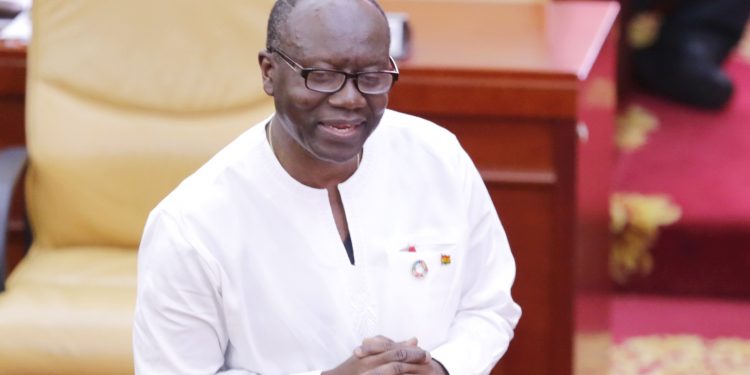The creation of the Development Bank Ghana (DBG) will see to the reduction and provision of low interest rates for Micro, Small and Medium Enterprises (MSMEs) in the country.
This is according to the Minister for Finance, Ken Ofori-Atta.
The assertion by the Minister comes barely a day after the European Investment Bank (EIB) and Ministry of Finance signed a loan facility of €170 million for the establishment of the Development Bank Ghana.
Speaking at a press briefing on the new bank, Ofori-Atta stated the fall interest rates will be the result of the pumping of more funds into the system by the bank.
“The interest rate issue has really been bedevilling for us. We came close to 30 percent or so and then it came to 23 percent, now I think we are around18 percent. That is not great, but you can see the gradual fall. I think naturally as we begin to see more resources in which we are on-lending to these institutions, one will have the banks will adjust because there is more capital, and we hope that the market will drive it down,” he said.
The Finance Minister also assured that stringent systems will be put in place to ensure that monies lent to banks for on-lending to micro, small and medium scale enterprises are not used in buying government securities.
He further explained that the Development Bank will not be a deposit-taking institution to mobilize funds from individuals and business consumers but will rather be made to lend to institutions, providing support for key sectors of the economy, particularly agricultural and real estate.
Touching on whether or not the newly secured 170 million Euros from the European Investment Bank will add to Ghana’s growing debt stock, the Finance Minister revealed that the facility was indeed a loan but assured that in the future the bank will be strong enough to secure credit based on its strong financials.
“The whole essence of this is to create institutions that can borrow on their own balance sheet, so that government is out of it so that the shareholders who will become owners of the bank are then the people that private sector is lending to. Certainly, we will have money in there, but soon you will begin to see a dilution of government shareholding in such a way that, that entity is on its own to be able to build a capital market without adding the burden to the country. So, the more such independent institutions we create which then lend on market basis or ensure that it is governed properly reduces our participation in that. And so that’s really what we are looking to do,” he intimated.
In addition to the 170 million euros from the European Investment Bank, an amount of $200 million dollars was provided by the Government of Ghana, as well as an amount of $250 million dollars from the International Development Association (IDA) of the World Bank for the establishment the bank.
DBG in its operations is expected to over the medium-term focus on and transform the industry, agriculture, agro-processing, and housing and mortgage sub-sectors of the economy.
When operational, DBG will deploy products and instruments such as credit guarantee funds, refinancing of Participating Financial Institutions (PFIs) loans, term loans, business development services and factoring, among others.








